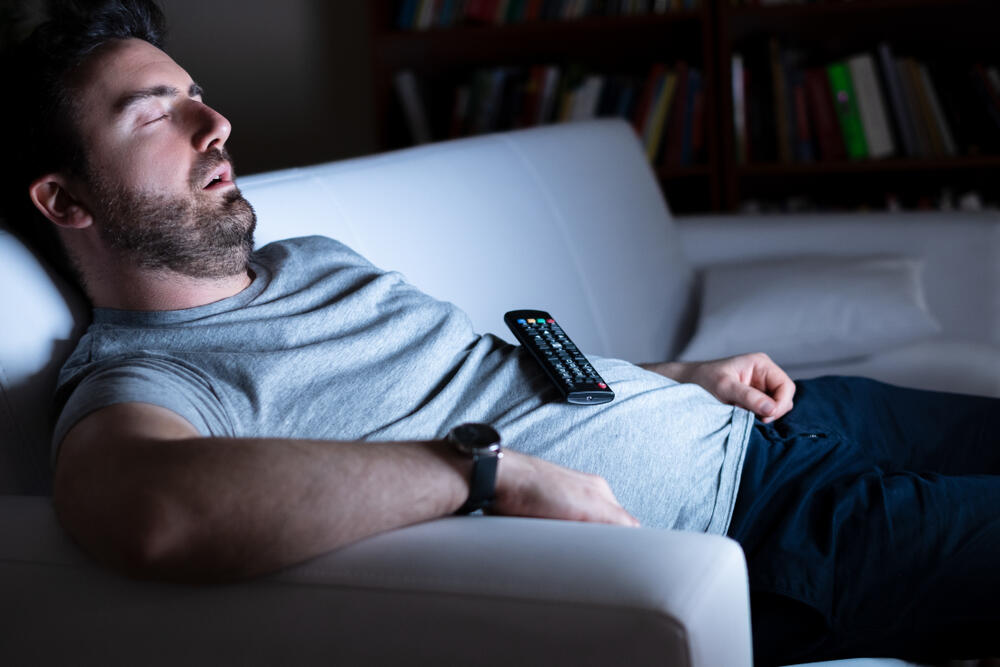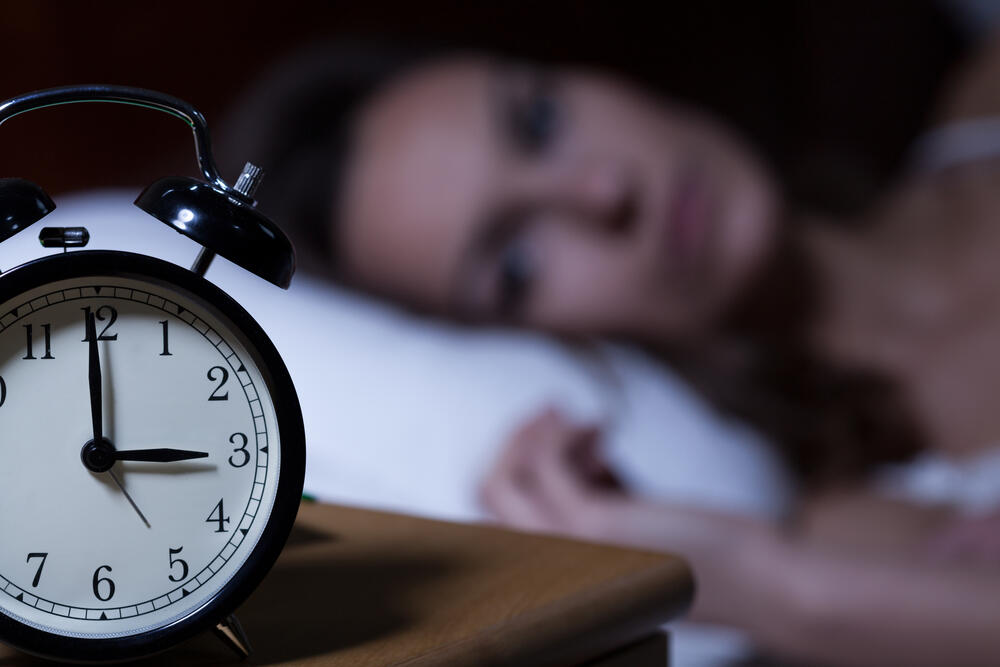Sleep expert Trevor Cooke warns that artificial light from TV screens can disrupt your body's natural sleep-wake cycle. Screen brightness prevents your body from producing hormones that contribute to quality sleep. Smartphone screens and other electronics emit blue light that can suppress your body's production of melatonin. Melatonin is a hormone produced by the pineal gland that helps regulate the circadian rhythm and sleep cycle.
It reduces the quality of sleep
Studies have shown that watching TV before going to bed can worsen sleep. Bright lights and exciting content of TV shows keep your brain active, which prevents you from relaxing and getting quality sleep. You will probably wake up at night and feel tired in the morning.
It affects the brain badly
Bad sleep has a negative effect on your brain. Memory is weaker, as are attention span and decision-making skills. Over time, sleeping in front of the TV can make it harder for you to study, focus and understand information, says this expert.
Also, sleep problems, in addition to causing problems with health and normal daily functioning, often disrupt interpersonal relationships. When a person is exhausted from lack of sleep, it is difficult to spend quality time in the company of other people.
It causes back and neck pain
In addition to ruining your sleep, sleeping in front of the TV can cause muscle and bone problems, says Trevor.

"Strange positions, especially on the sofa, can stress the neck and back muscles leading to stiffness, soreness and even chronic pain. Lack of proper support and the position of your spine can exacerbate existing problems or bring on new ones," he explained.
It leads to circulation problems
Sleeping in a way that puts pressure on certain parts of the body is known to disrupt proper blood flow. This can cause numbness and discomfort, especially in the hands and feet. If this goes on for a long time, it can lead to serious circulation problems and even cause conditions such as deep vein thrombosis, Trevor warned, citing The Star.
Tips for better sleep, if you wake up often at night
If you're having trouble getting back to sleep, see if there are any lights in the room that might be bothering you. LED lights from electronics and light coming through the window are known to make it difficult to sleep. If the light or noise is coming from outside, try drawing the curtains, closing the window, and/or putting earplugs in.
Get out of bed and take a walk
Many sleep experts recommend getting out of bed and going to another room when you don't fall asleep even after 20 minutes. It's a far better choice than staying in bed, because the more time you spend tossing and turning, the harder it will become to fall asleep.
If this happens to you too, get out of bed, go to another room and do something that will relax you and divert your thoughts, it is possible that you will fall asleep more easily later.
Avoid looking at the clock
Looking anxiously at the clock due to lack of sleep, especially if you already have anxiety disorders, does not help you relax at all.

A 2019 study by 'Trusted Source' found that the connection between anxiety and sleep can work both ways. People who deal with anxiety often worry about whether they will be able to fall asleep, which is why they have problems sleeping, while people who have problems sleeping often feel anxious because of this, reports 24sata.hr.
Meditate or try breathing exercises
Breathing exercises or meditation can help calm your mind and help you fall asleep. These techniques take your mind off worrying about not being able to sleep. One exercise you can use is called the 4-7-8 breathing technique. Dr. Andrew Weil, a Harvard-educated physician, is a big proponent of the 4-7-8 breathing technique, which relaxes the muscles and clears the mind, based on an ancient Indian practice.
With this technique, it is achieved that more oxygen enters the lungs, and thus the whole body, and thus relaxes it. Dr. Weil recommends this technique, not only before going to bed, but also during the day when we are under stress.
- Exhale completely through your mouth with a loud hiss.
- Close your mouth, breathe in quietly through your nose and count to four in your mind.
- Hold your breath for a count of seven.
- Exhale fully through your mouth again with a loud hiss and hold for eight seconds.
- Inhale and repeat the cycle three times for a total of four breaths.
Another technique
The so-called whole body scan is considered by many to be useful for relaxation and better sleep.
- Close your eyes and breathe slowly.
- Focus on your face and think about relaxing each muscle.
- Then move your thoughts to the neck and shoulders and think about how that part of the body relaxes as well.
- Continue to relax the muscles in different parts of the body until you reach the feet.
Listen to relaxing music
Relaxing music helps to calm the mind and thus help to fall asleep more easily. Also, it can block out some sounds that disturb your sleep.
A 2018 survey by 'Trusted Source' found that personal preference plays a large role in determining the type of music that best stimulates sleep for each individual. You may want to try a few different types until you find the one that works best for you.
Bonus video:





